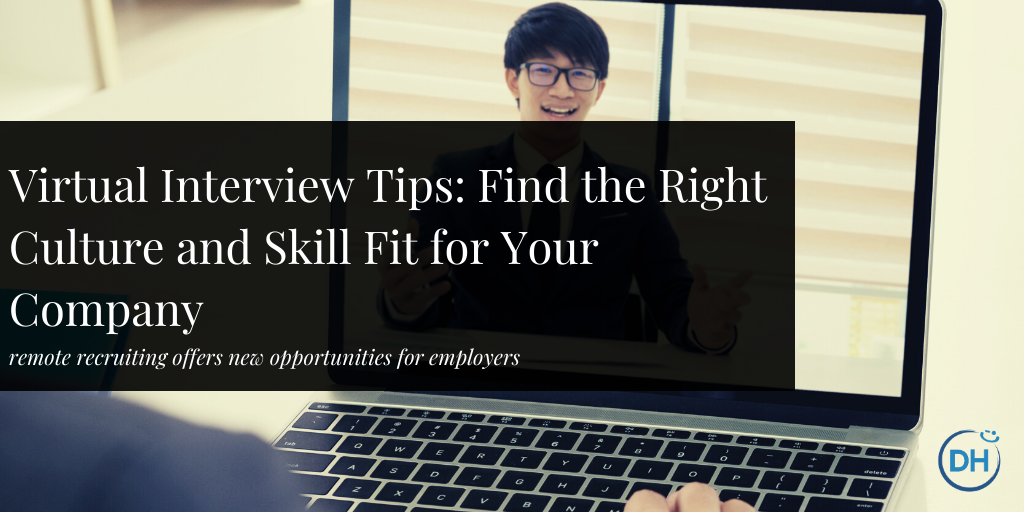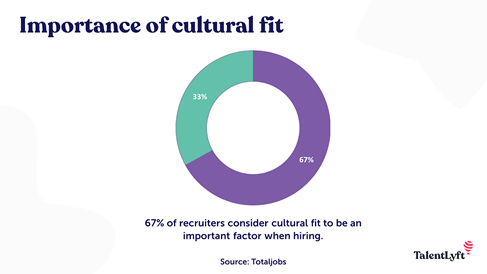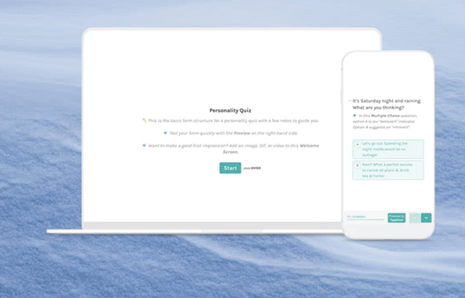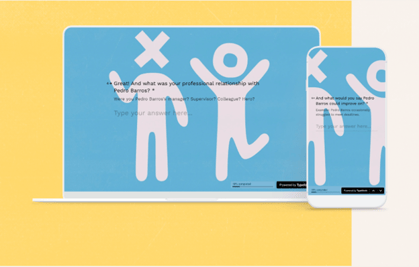
Whether you are recruiting for your remote team or adjusting to the recent shift to online work--remote recruiting doesn’t need to be less effective than a face-to-face experience. Here’s how to ensure you find the right fit for your company without leaving your home office.
The interview process can be complicated, and interviewing remotely can seem like a daunting task. The wrong fit means losing time and money; unfortunately, it is not an uncommon situation. Almost 74% of employers say they've hired the wrong person for a job.
Ensuring you can find the right person for the job means matching not only their skill set but also their personality to the company's culture. 67% of recruiters consider what we call 'culture fit' to be an important factor when hiring. You want someone who can do the job, but you want them to mesh well with your existing team while adding value.

The interview process stands between you and the right hire. Here are our tips for shaping your interview to identify the ideal person for the role.
There's a reason the classic interview style is favored by most employers [in fact, 74% of HR professionals around the world use structured interviews]. A structured question-and-answer session enables you to get the information you need while allowing the interviewee to show their personality.
A live session [using your preferred video software] allows you to deviate from your questions to dig into more detail or to have general chit-chat, which can be just as important in 'getting to know' the candidate.
Define what you are looking for:
Remote or not, all interviews require you to establish what you are looking for in a candidate upfront. This helps define your approach and your questions. However, interviewing remotely presents new opportunities.
You are able to observe how your candidate deals with a new set of challenges, such as new technologies and technical setup, and how they adapt to interviewing on camera. Depending on the role, each of these challenges can be increasingly important as we enter the brave new normal.
Don’t rush it
At this point, we have all done a few [or a lot] of video calls over the past few weeks. We have learned it’s not quite the same as being in a room with other people. You don’t see their body language, and connection problems often get in the way of a natural conversation. For this reason, when conducting virtual interviews, you may want to adapt your usual process.
Adding more stages in your interview process means more opportunities to get to know the candidate. Consider allowing other members of your team, or the CEO, to meet them too.
A study conducted by Recruiter Sentiment showed 51% of recruiters believe three is the right number of interview stages. The right amount depends on the role and your company, but you will likely not get a full picture of the candidate in less than three interviews.
Get to know your candidate
When thinking of your organization's cultural fit, it's essential to get to know your potential new hires. Asking your candidates to fill out an online quiz ahead of the interview is a good way to get to know a bit more about them.

Finding out what motivates them and their hobbies means that instead of asking, "What do you do this weekend?" you can skip straight to "So, did you get a chance to golf this week?".
Online quizzes give you a chance to discover what makes your candidates tick, but they can also be helpful in assessing how they might handle hypothetical situations. Ask them to provide examples of situations they've dealt with or dig deeper into their skill sets. Moreover, you can create personality tests and let your employees take them for better self-understanding. You can make use the WordPress Quiz plugin to create one for your website.
Ask the right questions
Hire by Google says, "Assessing culture fit is about much more than whether or not you’d like to hang out with someone at a company happy hour.”
Having a set of questions ready is vital in ensuring you get the information you need about your candidate. Your questions should be designed to extract responses from your candidate about "what they know" and "who they are" in order to help you assess their fit in terms of skill and culture for the role.
Sharing questions in advance with your colleagues helps ensure they are well-aligned to your entire team’s goals and values. In the name of keeping it fair, you should also keep these questions consistent across all candidates to more accurately compare answers.
Of course, this is your chance to show what your company has to offer. Make sure you prepare examples of benefits, employee recognition programs, and a personal glowing testimonial for when they get a chance to ask you questions in return.
The phase after your virtual interview is just as important as sealing the deal and choosing the right candidate to join your team.
Getting references
References are an essential final step in verifying that the candidate is the right fit; however, it can be a lengthy process if not well organized. Having a consistent approach can make this a more streamlined task.

The example above shows a simple online form that can be sent to references requesting information about the candidate. This not only ensures your answers are equally weighted but makes the process easier for the person completing it, which means you are more likely to get a good response.
Communication
A massive 81% of candidates said the main thing that would significantly improve the candidate experience is better communication and status updates from the employer. We all know the waiting and uncertainty can be unsettling, so making an effort to keep candidates up to date will be appreciated.
In fact, failing to communicate could affect your business. 72% of job seekers who had a bad candidate experience told others about it. 64% of job seekers admitted a poor candidate experience would make them less likely to purchase goods and services from that employer in the future.
Wrapping up
There is a lot we can apply from our true and tested methods of face-to-face interviews when it comes to virtual interviewing. Your questions and approach remain the most important part of interviewing, but don't forget to take advantage of the new opportunities that virtual interviewing allows for you to get to know your candidate better.

Alex Birch is the SEO Manager at Typeform. He is a lover of all things marketing & search. Alex is originally from Manchester, UK but now enjoying life in sunny Barcelona.